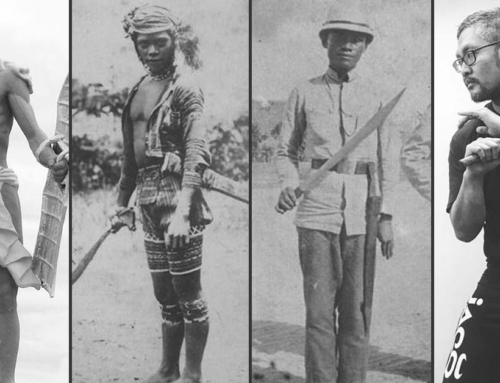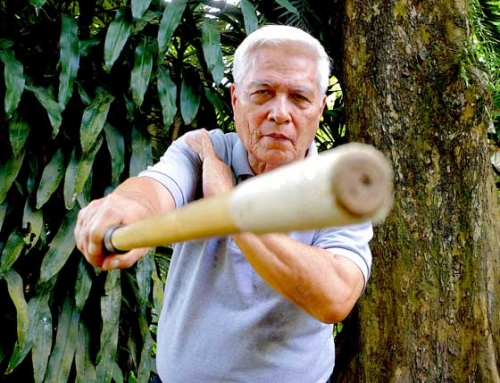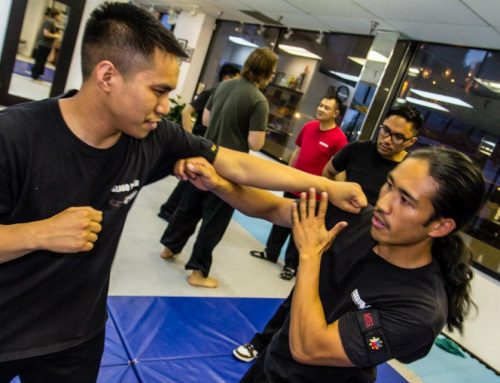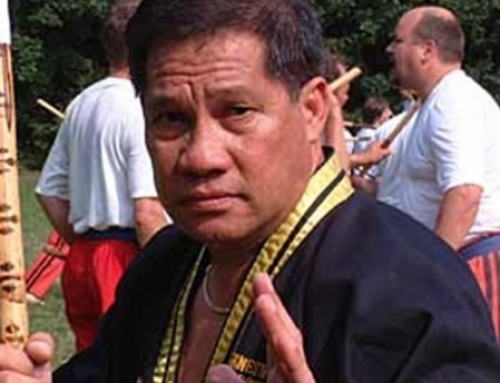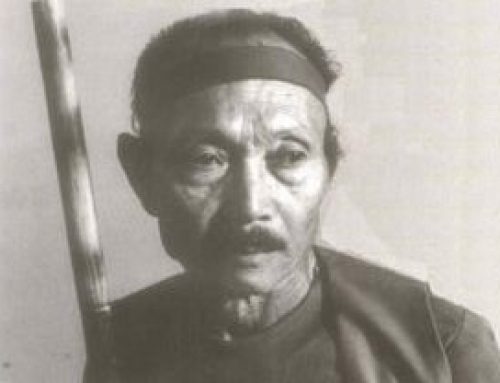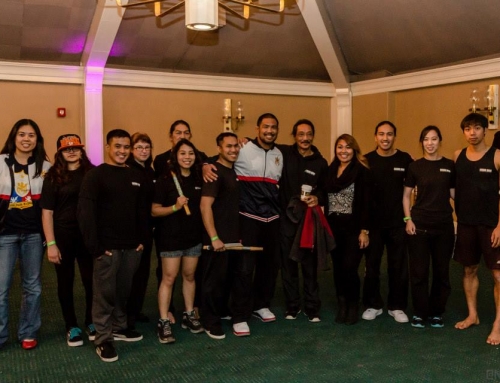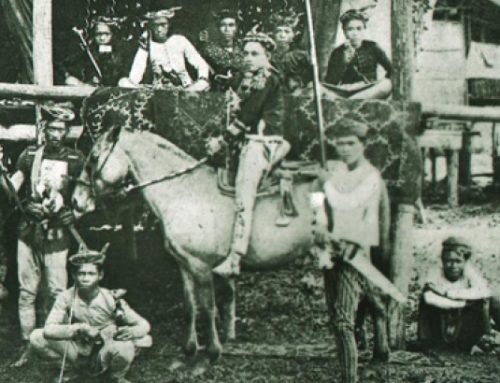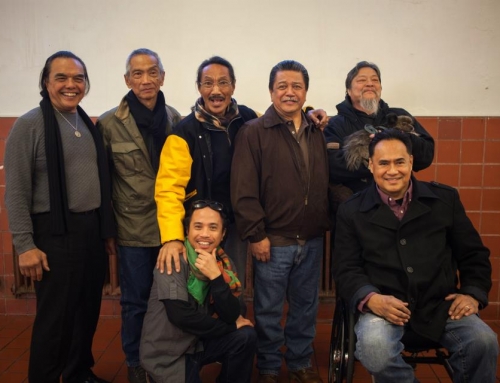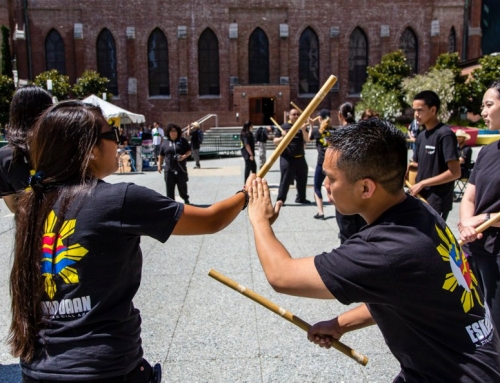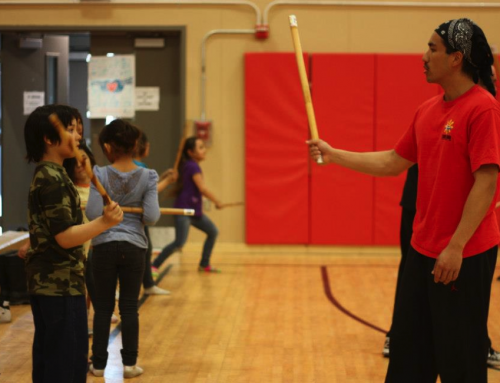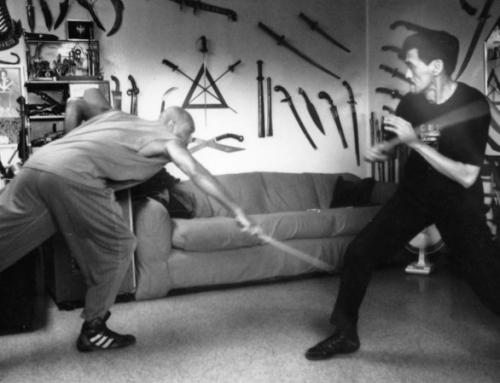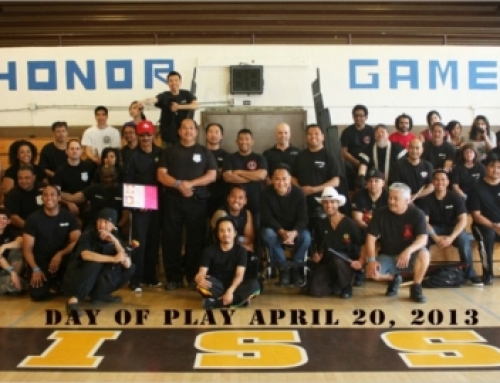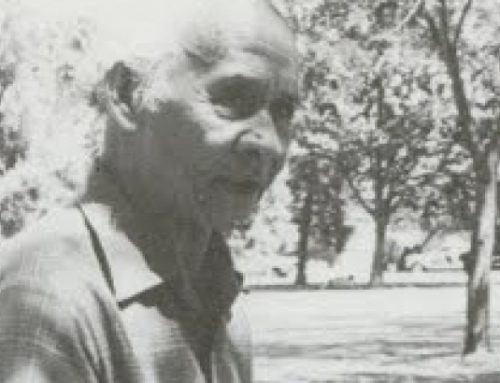Punong Guro Myrlino P. Hufana has long wanted to document the systems and compelling stories of the masters of Filipino Martial Arts. Hufana, founder of the World Filipino Martial Arts Association (WFMAA), has been a longtime supporter of unifying these combative arts with openness and respect without emphasizing a specific system, region, or person.
Hufana was given the opportunity to record the traditions of the FMA when one of his students, independent filmmaker Barclay Powers approached Hufana in early 2010 about traveling to the Philippines to meet with and film several highly respected masters.
By March 2010, Hufana and a film crew had arrived in the Philippines, ready to document the rich history and the positive future of the FMA with Voices of the Masters.
 Hufana, who was also working with Powers on another film titled Killing the Buddha: The Lost Secret of Immortality said, “Voices of the Masters developed much faster than I thought it would.
Hufana, who was also working with Powers on another film titled Killing the Buddha: The Lost Secret of Immortality said, “Voices of the Masters developed much faster than I thought it would.
We were ready to go within a matter of weeks, when I thought this was maybe five years down the road.”
Fortunately, funds were quickly raised within the Hufana Traditional Arnis (HTAI) family and an itinerary was assembled. Hufana is also featured in the Killing the Buddha motion comic, a bestseller on iTunes.
The purpose of Voices of the Masters is to propagate, promote, and preserve the FMA. Nothing of this caliber has been done before and as many grandmasters age, the importance and urgency of recording their unique styles became clear, Hufana said.
A number of books, short films, and articles have discussed many aspects of the world of FMA. However, Voices of the Masters is the first feature-length film to chronicle all of this, bringing together a wide variety of styles, practitioners, and philosophies.
The FMA are complete fighting systems, not mixed martial arts sports. This means that learning FMA techniques will serve a practitioner in actual combat because they are realistic, with techniques for varying ranges, multiple opponents, and advanced weapons training.

On the way to film a group at Luneta Park, Manila
Largo mano (long range), medio (midrange), corto (close quarters), and dumong or buno (ground fighting) constitute the different ranges that FMA instructors teach their students.
A new student, or bagong pasok, begins their training with a rattan stick or a blade, one of the distinguishing traits of FMA. The practicality of FMA is a common thread throughout these combat arts – experienced practitioners can adapt to any real-life situation.
Because FMA are designed for real-life combat, the training may seem brutal, but during practice both players have a mutual understanding that safety and control are of utmost importance. As a practical combat art, FMA training is extremely useful to law enforcement officers and the military.
The Armed Forces of the Philippines are trained in FMA because it is seen as an efficient method for close quarter combat. Police officers can also benefit from FMA training, as it is effective in restraining suspects and often prevents officers from having to use their guns.
Just as it is important for civilians to learn how to defend themselves with FMA training, it is important for military and law enforcement officers to be confident in their abilities to realistically handle situations involving weapons.
In addition to Voices of the Masters, Hufana has been propagating the FMA through seminars around the United States for nearly 15 years, as well as teaching FMA at his school, the Bellevue Martial Arts Academy, located in Bellevue, Wash. Hufana is currently teaching more than 75 students in Washington State alone.

PG Hufana, Lizelle & Michael Hufana

PG & son Michael demonstration at Pagdiriwang 2009
Two of Hufana’s longtime students are his two children: Michael Hufana, 22, and Lizelle Hufana, 21. Both Michael and Lizelle are instructors at the Bellevue Martial Arts Academy and are featured in Voices of the Masters.
“This is the first time FMA has been in a well-produced movie,” Michael said. “I think Voices of the Masters will really do a great job with letting people know that the Philippines have a martial art, too.”
Both Michael and Lizelle cited connecting with their culture as a major part of their interest in pursuing FMA (both are first degree black belts in HTAI Arnis and third degree black belts in Traditional Taekwondo).
Lizelle said that the role of FMA has played in her life has been huge, carrying over into other areas of her life such as her work and studies.
“Learning FMA has really taught me to be open-minded because one of the main principles of the sport is adaptability,” she commented.
Michael said he felt that adaptability is a strong trait of Filipino culture, citing the nation’s ability to bounce back after being colonized.

GM Jerry dela Cruz, teaching at the Arnis Village
Lizelle works two jobs while also taking a full credit load at Bellevue College and teaching at her father’s academy. Michael attends the University of Washington and works at a bank in addition to teaching at the Bellevue Martial Arts Academy.
Hufana and his children are excited about the opportunity to show their combat art to the world, as well as expose FMA to people who may be unfamiliar with it.
“I think that women can really gain a lot from seeing the movie and from getting involved in FMA. It’s great for building confidence and discipline,” Lizelle said.
Michael wants Filipinos to see Voices of the Masters: “I think that Filipinos are obligated to know about our national martial art; Japan has karate, Korea has taekwondo, FMA is our sport and our art,” he said.
Hufana and his two children are hoping that Voices of the Masters will help increase awareness of the martial art and sport both in the Philippines and around the world.
Arnis recently became the national sport and martial art of the Philippines, so now is the perfect time for a film like Voices of the Masters, Hufana said. The film seeks to promote FMA as a whole, and not one particular person.
“We wanted to represent the whole FMA and promote the entire umbrella of the art. We respect them all and we are proud of them all,” Hufana said.

Tortal Family Art of Dekiti Tirsia Siradas

GM Rodrigo Maranga & son Rico
Although Hufana started the WFMAA in 2003, he said a unified association seems unlikely because of the temperament, nature, pride, culture, and tradition of the Filipinos. Hufana is still hopeful about the future of FMA.
The goal of Voices of the Masters and the WFMAA is to encourage a brotherhood between leaders and practitioners of all styles of FMA, not to standardize the combat art or to say that one system is the best.
Hufana wants to promote open communication, appreciation, and respect between leaders in order to develop a stronger FMA around the world.
Each year, the WFMAA hosts a three-day exposition and Laban Laro tournament. Due to Hufana’s current projects such as Voices of the Masters, the 2010 expo has been rescheduled for 2011.
Participants of all skill levels are welcome to sit in on seminars taught by world-renowned instructors as well as attend a Laban Laro tournament.
While Voices of the Masters shows expert technique and allows instructors to expound on their methods and philosophies, the real-life exposure to the experts adds another dimension to the complexity of FMA.

Butterfly knife maker, Balisong, Batangas
Everyone involved in making and acting in Voices of the Masters is passionate about the propagation and preservation of FMA traditions and techniques.
Even as FMA gains popularity around the world, it is important to understand the traditions and cultures behind the combat art, Hufana said, and that is something that Voices of the Masters strives to do.
Additionally, Hufana has created Filipino Martial Arts instructional applications that are now available at the iTunes App Store entitled Weapon Arts 1: Filipino Combat Stick Fighting. An entire series of apps is anticipated.
Voices of the Masters is the first film that truly captures the magic of the traditional Filipino martial arts. The film will be available for purchase as a download, on DVD, and Pay-Per-View. To learn more about the film and where to see it, please visit VoicesoftheMasters.com.
Voices of the Masters Trailer


